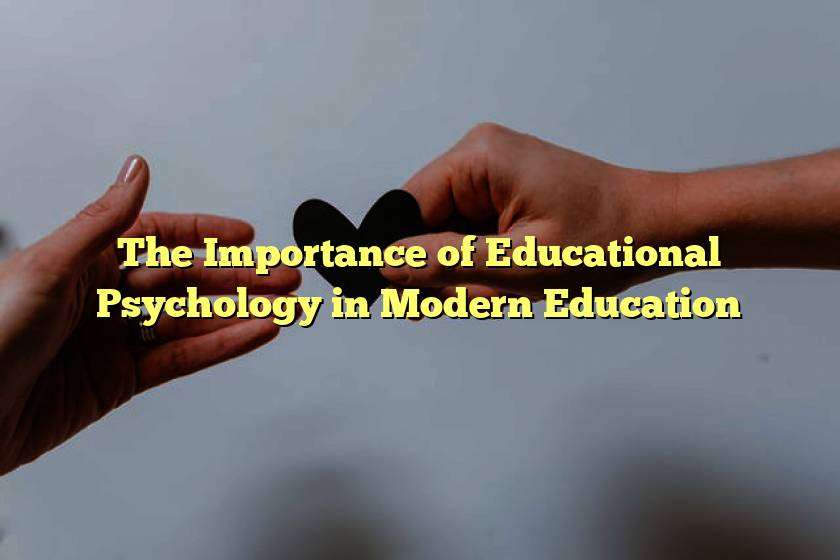Education is a cornerstone of modern society, providing the skills and knowledge necessary for individuals to succeed and contribute to their communities. However, the process of education is not as simple as it may seem. It requires careful consideration of a variety of factors, including the psychology of learning. In this article, we will explore the importance of educational psychology in modern education and how it contributes to learning outcomes.
What is Educational Psychology?
Educational psychology is a discipline that focuses on the ways in which people learn, how they develop, and how they retain information. It is not simply concerned with the traditional academic subjects like maths and science, but also with the social and emotional development of individuals. The field of educational psychology examines how students learn, what motivates them, how they process information, and how to maximise their potential.
Why is Educational Psychology Important?
The role of educational psychology in modern education cannot be overstated. Without it, we would be unable to understand how students learn and what factors affect their learning outcomes. Educational psychologists provide insight into how learning can be improved, and how teachers can create a supportive and effective learning environment. They work to identify and address learning and behavioural problems that can hinder academic progress, and develop strategies to overcome them.
The Benefits of Incorporating Educational Psychology into Modern Education
There are numerous benefits to incorporating the principles of educational psychology into modern education. By applying the insights of educational psychology, teachers can create a learning environment that is tailored to the needs of each student. This individualised approach acknowledges the diversity of learners and takes into account their unique cognitive, social, and emotional development.
Another benefit is that educational psychology provides a scientific basis for understanding how learning occurs and what factors can impact it. Teachers can use this knowledge to design effective teaching strategies that maximise learning outcomes. They can also identify and address any factors that may impact the learning experience, such as environmental or emotional stressors.
The Role of Educational Psychology in Teacher Training
Educational psychology plays a vital role in teacher training. It provides teachers with the knowledge and tools they need to create a supportive learning environment and cater to the diverse needs of their students. By understanding the principles of educational psychology, teachers can identify and address learning difficulties, provide support for students with special needs, and develop strategies for engaging all students in the learning process.
Additionally, educational psychology can provide teachers with a deeper understanding of their own teaching styles and how they impact student learning. This self-awareness can lead to more effective teaching practices and improved learning outcomes for students.
The Future of Educational Psychology in Modern Education
The role of educational psychology in modern education is likely to continue growing in importance in the coming years. As the diversity of learners continues to increase, the need for individualised learning approaches that cater to the unique needs of each student will become more pressing. Additionally, advances in technology and neuroscience are likely to provide new insights into how students learn, which can further inform teaching strategies.
In conclusion, educational psychology is a vital component of modern education. It provides the tools and knowledge necessary to maximise learning outcomes for students, supports teacher training and development, and continues to evolve and adapt to meet the changing needs of learners. By prioritising educational psychology in education, we can create a learning environment that is tailored to the needs of each individual student and promote academic success for all.



